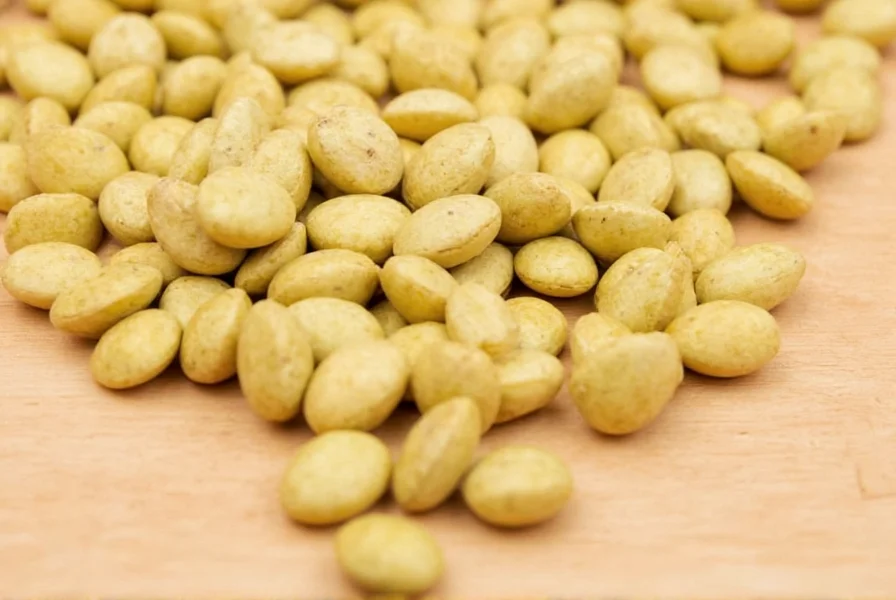Fenugreek (Trigonella foenum-graecum) has been used for centuries in traditional medicine and culinary applications. While generally recognized as safe when consumed in typical food quantities, its concentrated supplement form requires careful consideration of potential adverse reactions. This comprehensive guide examines the scientifically documented side effects of fenugreek based on current medical research and clinical evidence.
Common Fenugreek Side Effects
Most people tolerate fenugreek well when used appropriately, but certain side effects occur more frequently than others. Understanding these common reactions helps users make informed decisions about fenugreek consumption.
| Side Effect | Frequency | Typical Onset | Severity Level |
|---|---|---|---|
| Digestive discomfort | Very common (15-20%) | Within hours of consumption | Mild to moderate |
| Maple syrup-like body odor | Common (10-15%) | 24-48 hours after use | Mild |
| Nausea | Moderate (5-10%) | Within hours | Mild to moderate |
| Dizziness | Less common (2-5%) | Within hours | Moderate |
Digestive issues represent the most frequently reported fenugreek supplement side effects. These typically include diarrhea, gas, bloating, and stomach upset, particularly when starting supplementation or taking higher doses. The distinctive maple syrup-like body odor and urine smell occurs due to sotolone, a compound also found in actual maple syrup.

Serious Adverse Reactions Requiring Medical Attention
While rare, certain fenugreek side effects warrant immediate medical consultation. These serious reactions typically occur with higher supplement doses or in susceptible individuals.
- Severe allergic reactions: Individuals with peanut or chickpea allergies face higher risk of cross-reactivity due to botanical similarities. Symptoms include difficulty breathing, facial swelling, and hives.
- Significant blood sugar drops: Fenugreek's hypoglycemic effect can cause dangerously low blood sugar levels, especially when combined with diabetes medications.
- Complications during pregnancy: Fenugreek may stimulate uterine contractions, potentially leading to preterm labor or miscarriage.
- Bleeding complications: When combined with blood thinners like warfarin, fenugreek may increase bleeding risk.
Special Populations at Higher Risk
Certain groups should exercise particular caution or avoid fenugreek supplementation altogether:
Pregnant and Breastfeeding Women
Is fenugreek safe during pregnancy? Medical professionals generally advise against fenugreek supplementation during pregnancy due to potential uterine stimulation effects. While some lactation consultants recommend fenugreek for increasing milk supply postpartum, women should consult their healthcare provider before using it while breastfeeding.
Individuals with Diabetes
Fenugreek drug interactions with diabetes medications represent a significant concern. The herb's blood sugar-lowering properties can amplify the effects of medications like insulin and metformin, potentially causing hypoglycemia. Anyone with diabetes considering fenugreek should monitor blood sugar closely and consult their physician about possible medication adjustments.
People with Peanut or Chickpea Allergies
Due to botanical similarities, fenugreek allergy cross-reactivity occurs in approximately 25% of people with peanut allergies. Those with legume sensitivities should perform a patch test before consuming fenugreek supplements.

Recommended Dosage and Safety Guidelines
Understanding appropriate fenugreek dosage for safety helps minimize adverse reactions. Culinary use of fenugreek seeds (up to 5 grams daily) rarely causes issues, but supplement doses require more caution:
- Standardized supplements: 500-1,000 mg taken 2-3 times daily
- Seeds: Up to 6 grams daily in divided doses
- Tea: 1-2 teaspoons of seeds steeped in hot water, up to 3 times daily
Start with lower doses and gradually increase to assess tolerance. Take fenugreek with food to reduce gastrointestinal side effects. Discontinue use at least two weeks before scheduled surgery due to potential bleeding risks.
When to Consult a Healthcare Provider
Seek medical advice before using fenugreek supplements if you:
- Take medications for diabetes or blood thinning
- Are pregnant or breastfeeding
- Have a history of hormone-sensitive conditions
- Experience persistent or severe side effects
- Plan to use fenugreek for more than 8 weeks continuously
Healthcare providers can help determine whether fenugreek benefits outweigh potential risks based on individual health status and medication profile. They can also monitor for potential fenugreek medication interactions during use.
Conclusion
Fenugreek offers potential health benefits but requires careful consideration of possible adverse effects. Most side effects occur with supplement use rather than culinary consumption. Understanding your personal risk factors, starting with conservative doses, and consulting healthcare professionals when necessary allows for safer incorporation of fenugreek into your wellness routine. Always prioritize evidence-based information when evaluating natural remedies like fenugreek to make informed decisions about your health.
Frequently Asked Questions
Can fenugreek cause digestive problems?
Yes, digestive issues represent the most common fenugreek side effects. Approximately 15-20% of users experience diarrhea, gas, bloating, or stomach upset, particularly when starting supplementation or taking higher doses. Taking fenugreek with food can help minimize these gastrointestinal effects.
Is fenugreek safe for people with diabetes?
Fenugreek requires caution for people with diabetes due to its blood sugar-lowering effects. When combined with diabetes medications, it can cause dangerously low blood sugar levels. Anyone with diabetes considering fenugreek should consult their healthcare provider and monitor blood glucose levels closely while using it.
Can I use fenugreek while pregnant?
Medical professionals generally advise against fenugreek supplementation during pregnancy. Research suggests fenugreek may stimulate uterine contractions, potentially increasing the risk of preterm labor or miscarriage. Culinary use in small amounts as a spice is generally considered safe, but therapeutic doses should be avoided without medical supervision.
What medications interact with fenugreek?
Fenugreek has significant interactions with diabetes medications (insulin, metformin) due to additive blood sugar-lowering effects. It may also enhance the effects of blood thinners like warfarin, increasing bleeding risk. Additionally, fenugreek's potential estrogenic effects could interfere with hormone therapies. Always consult your healthcare provider about potential fenugreek drug interactions before starting supplementation.
How long do fenugreek side effects last?
Most common fenugreek side effects like digestive discomfort or the characteristic maple syrup body odor typically resolve within 24-48 hours after discontinuing use. Allergic reactions may require medical treatment and could persist longer. Serious side effects related to blood sugar or bleeding complications usually resolve once fenugreek is discontinued, but may require immediate medical intervention depending on severity.











 浙公网安备
33010002000092号
浙公网安备
33010002000092号 浙B2-20120091-4
浙B2-20120091-4